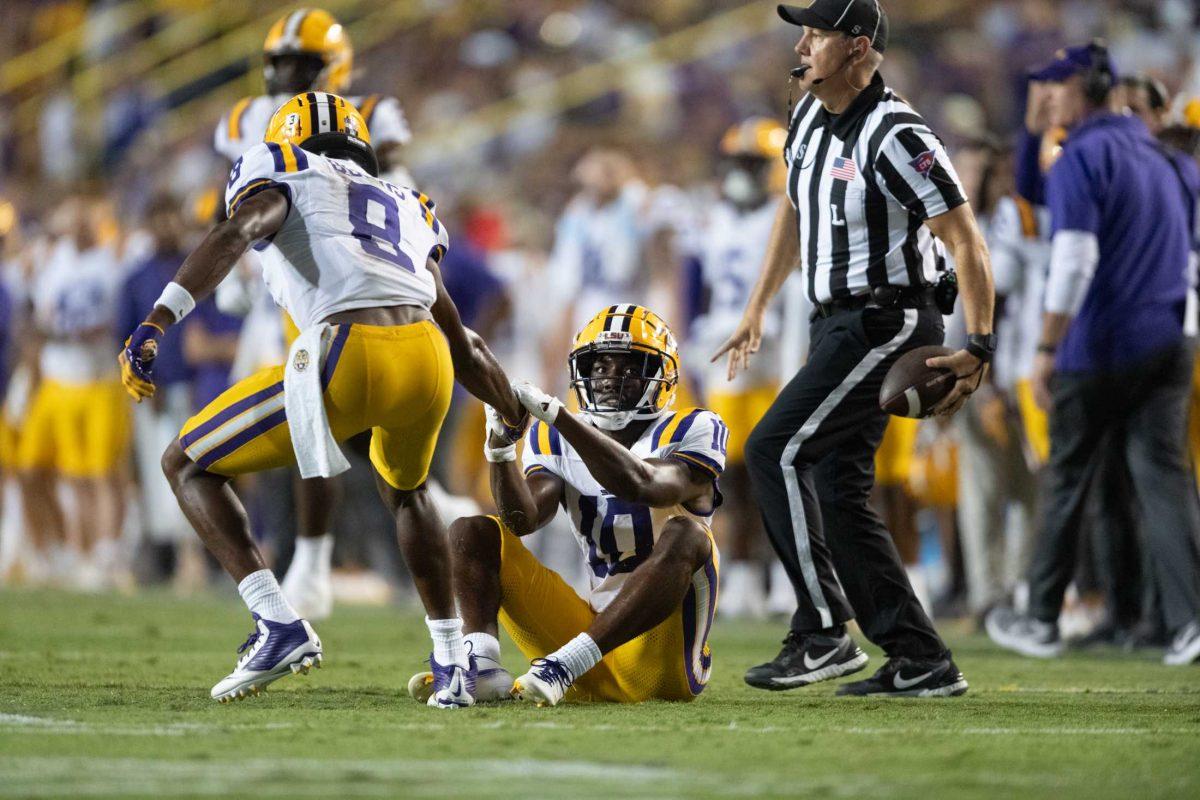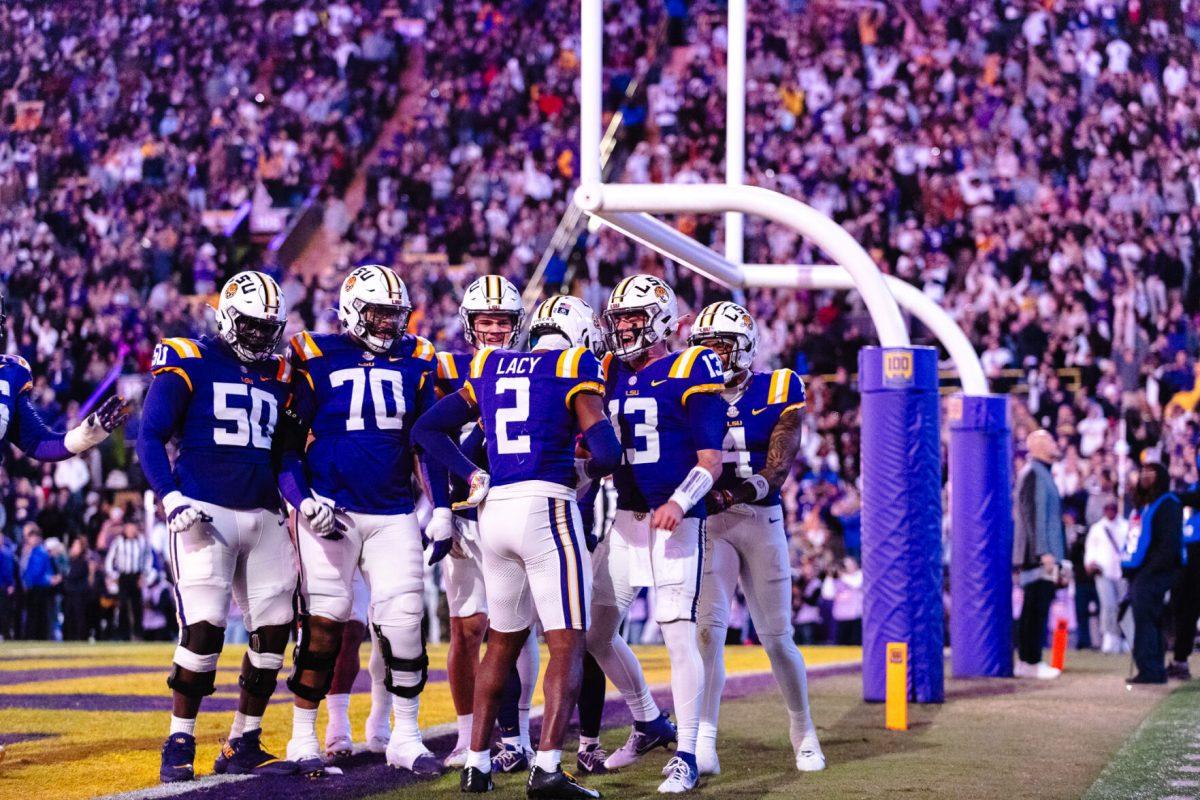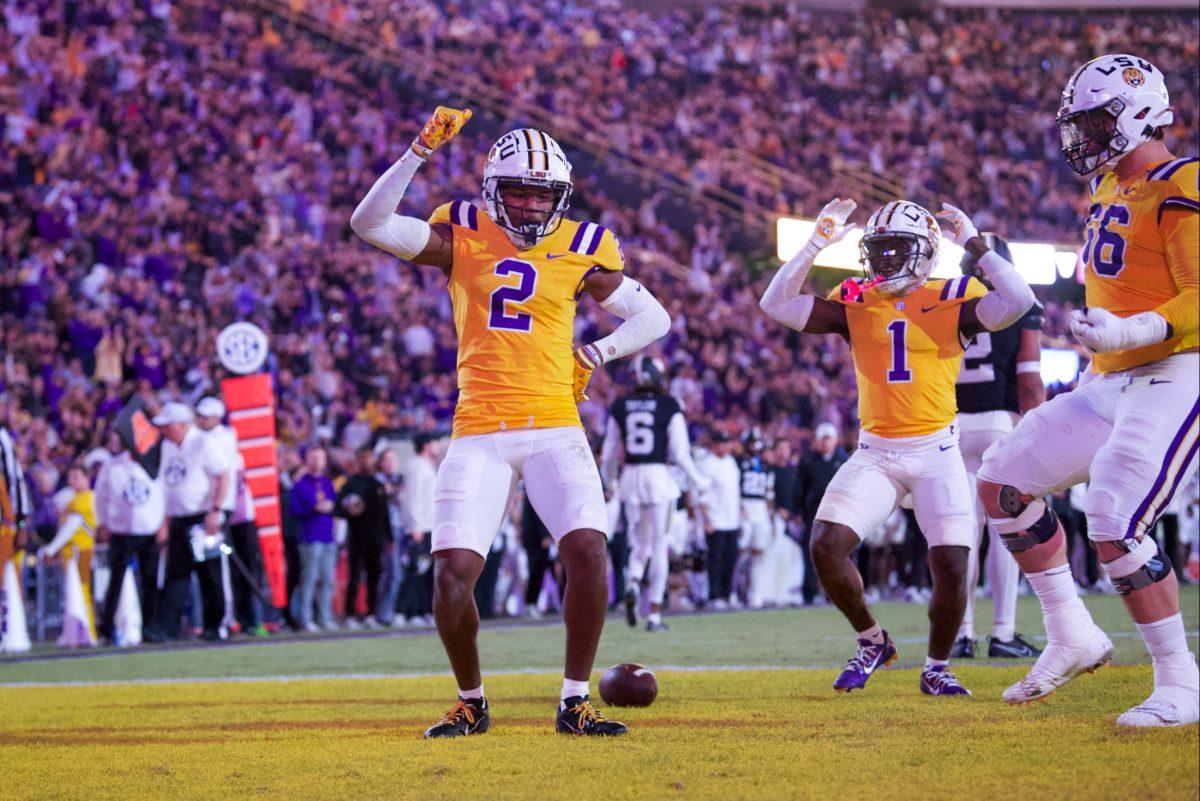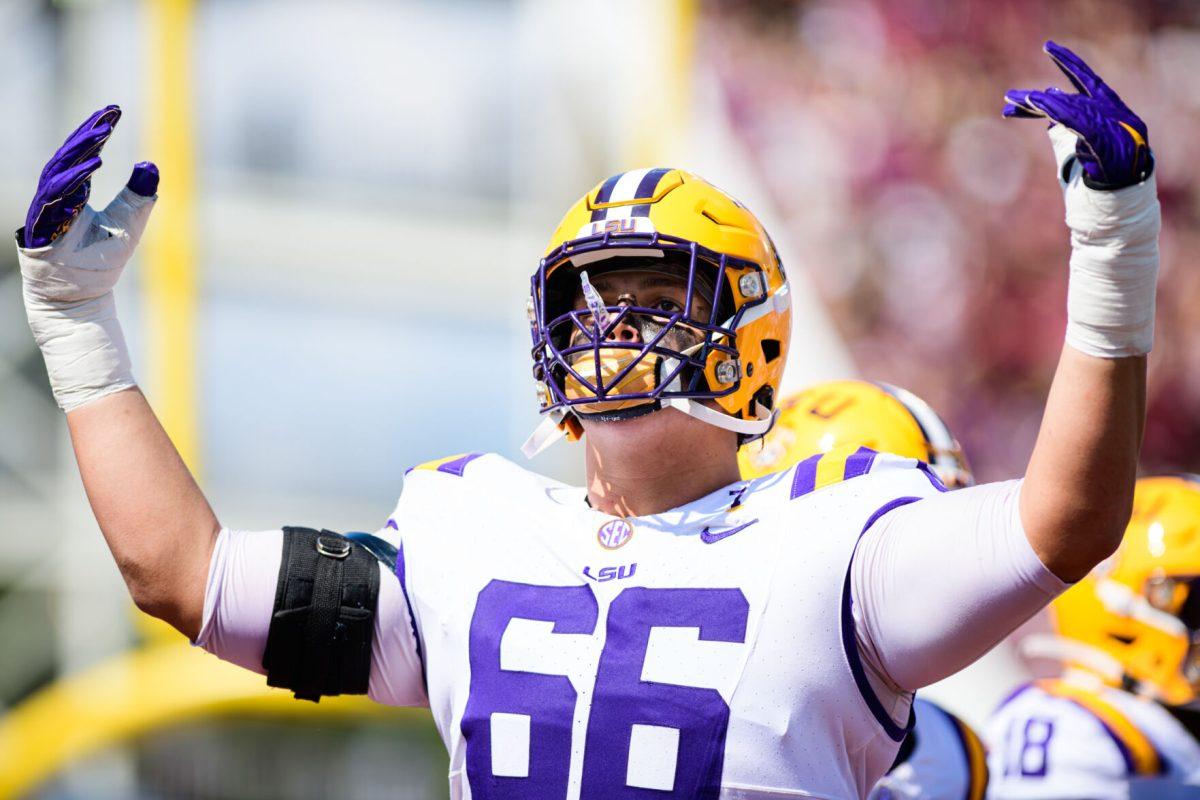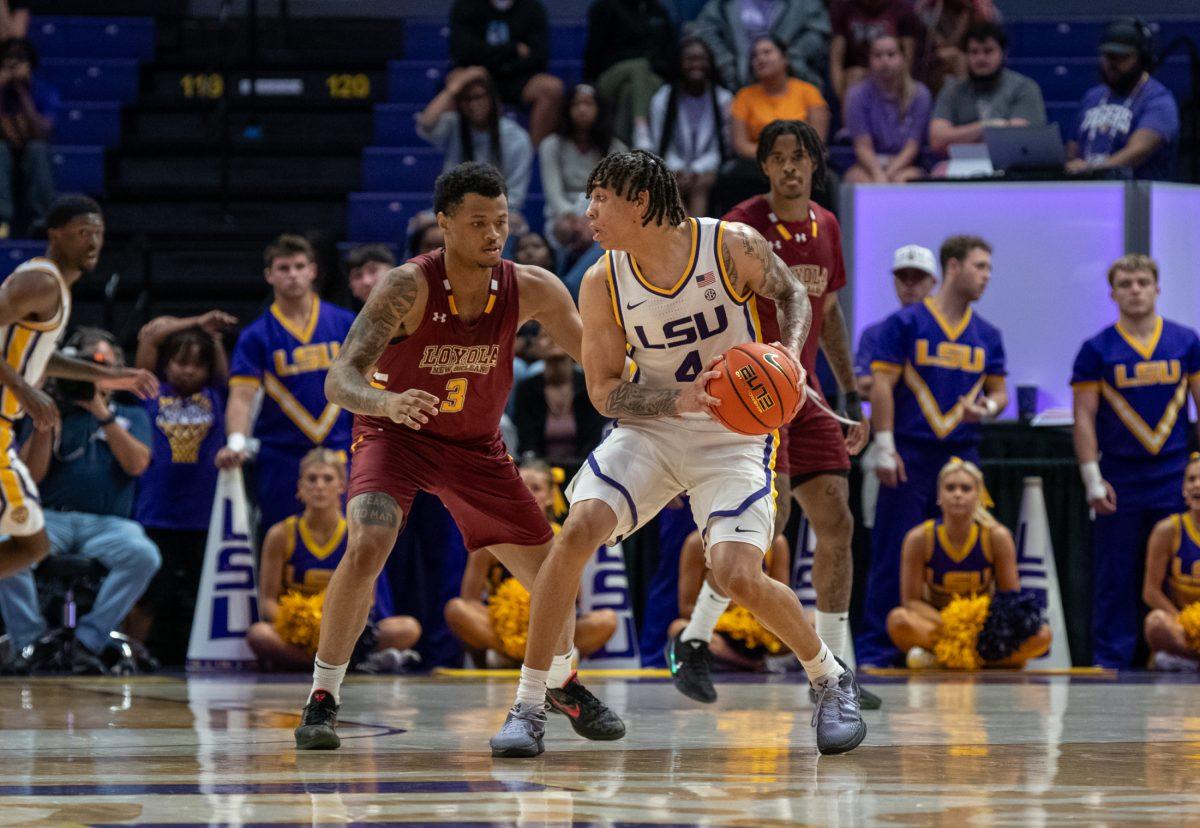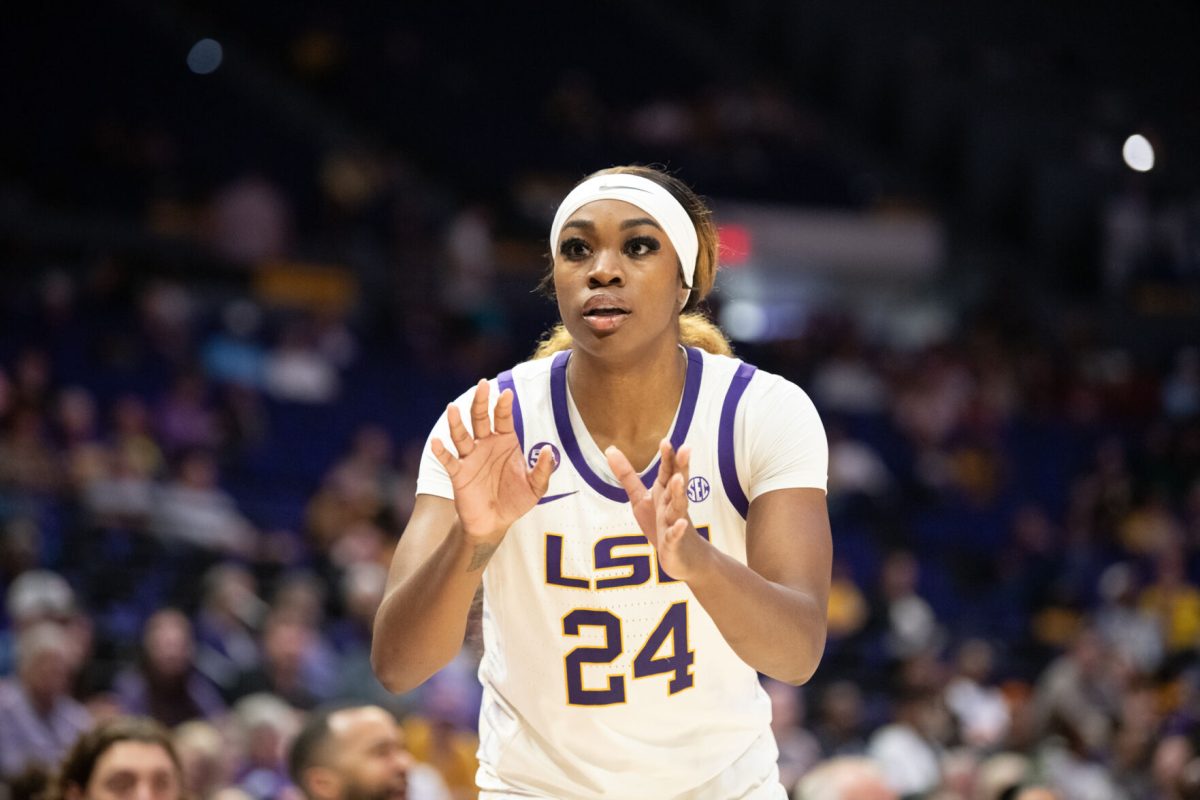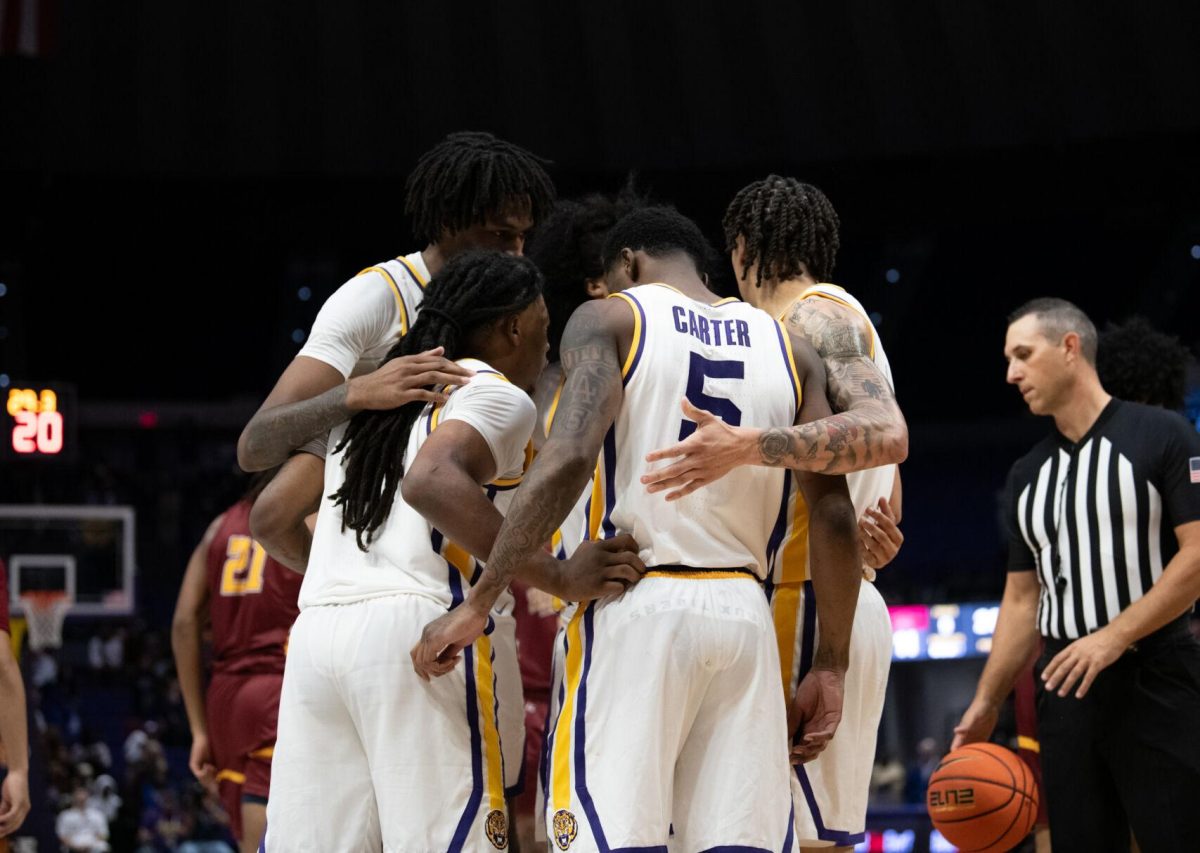It’s good practice not to put too much stock into a good performance until you see it repeated.
LSU’s defense had some serious questions heading into the season, primarily in the secondary, and those concerns seemed to be validated by shaky performances against Florida State and for the first few drives against Grambling State.
Then, in the Tigers’ first SEC matchup at Mississippi State, they held the Bulldogs to just 201 yards of offense and 10 first downs. From the very beginning, Mississippi State’s offense was stifled, with four of its first five drives going for three-and-outs.
There was hope the defense had turned the corner, but it still needed to prove its legitimacy against Arkansas.
It did just that in the first half, forcing the Razorbacks to settle for two red zone field goals and keeping the game close for a struggling offense. However, Arkansas drove inside the 10 on each of its three second half drives, not counting the final hail mary heave, and scored a total of 18 points on those possessions, exposing the LSU defense.
Inside the team, coaches and players are confident that the defense will find its footing and that its true quality is more like what we’ve seen against Mississippi State and in the first half of the matchup with Arkansas.
MORE FOOTBALL: Brian Thomas Jr. and Malik Nabers’ heroics salvage 34-31 victory for LSU over Arkansas
There have certainly been positives this season for the defense, but it’s hard to tell at this point how good the unit really is.
Here are two reasons to buy into the Tiger defense and two reasons to be skeptical:
The run defense has been consistently solid since the early stages of the Grambling game
On Grambling’s first three drives, it racked up 111 rushing yards on 11 attempts. The defense tightened up after that, but the showing was concerning.
Since that point, across about two and a half whole games, the LSU defense has allowed 283 yards on 76 attempts, an average of 3.7 yards.
The team has been more disciplined across the board in defending the run, but also more explosive. The emergence of athletic freshman linebacker Whit Weeks has been big for the Tigers, especially with the ongoing absence of linebacker Omar Speights. Andre Sam flashed in the Arkansas game as another second-level defender whose instincts will help to stop opposing rushers.
That was especially important in the red zone. LSU’s run defense contributed greatly to several goal-line stands, as it stuffed Arkansas for short gains while forcing the Razorbacks to settle for field goals on three different drives that each went inside LSU’s 10-yard line.
However, no team has really forced the issue against the LSU run defense
LSU hasn’t come against a team that both has placed a heavy emphasis on hammering the run against LSU and possesses an elite rushing game.
Despite Mississippi State entering the game as a run-heavy team, the Bulldogs came out passing. The game plan was clearly to challenge the Tiger secondary with quarterback Will Rogers’ arm.
When that didn’t work, and Mississippi State quickly found itself trailing, it was forced to continue passing to keep up and never really established the run. The Bulldogs finished with 21 rushing attempts, including just eight from star back Jo’Quavious Marks.
Arkansas did run the ball with more regularity than Mississippi State, but taking out KJ Jefferson’s scrambles, the Razorback offense ran only 29 designed runs against LSU, a season low.
It was clear that the team found more success through the air and needed to prioritize that, especially when the second half became a back-and-forth affair.
Arkansas also came into the game as an inefficient run offense, a trend that continued against the Tigers with an average gain of 3.7 yards.
LSU certainly has the players in place to be an elite run defense, with Mekhi Wingo and Maason Smith plugging up the middle and active linebackers and safeties always rushing in to help.
However, the team has yet to be truly tested by a perfect storm of strong rushing personnel and a determination to establish the run.
KJ Jefferson posed problems defensively that not many quarterbacks do
As great of a runner as Jefferson is on designed plays, LSU struggled most with getting him down when he dropped back to pass. His unique combination of strength and speed means he can break tackles and extend plays like few others can.
That led to a few back-breaking plays, like a crucial 25-yard scramble on third down in the first quarter that led to a field goal and a 59-yard passing touchdown early in the fourth quarter as Jefferson sprinted to his right.
The good news is LSU doesn’t have to face Jefferson again. Head coach Brian Kelly noted after an outstanding performance from his pass-rush against Mississippi State that it’s much easier for his defense to get a pocket passer down.
“If you’re a pocket quarterback, we’re going to get to you,” said Kelly. “If you take any time, we’re going to get to you.”
The Tigers do face a quarterback with dual-threat capabilities in Jaxson Dart this week, but he’s not quite the force that Jefferson is. Beyond that, LSU will face few mobile quarterbacks this season. That bodes well for the defense.
READ MORE: Clutching to the Golden Boot: LSU defeats Arkansas 34-31
Reinforcements aren’t coming for the secondary
LSU’s greatest weakness is still its defensive backs, most specifically its cornerbacks. Sam and Major Burns have been solid at the safety spots, although they’ve had their struggles. The cornerbacks, however, have been consistently attacked by opposing offenses.
Jefferson and the Arkansas offense didn’t stretch the field, but their quick passing game routinely found LSU’s cornerbacks out of position on the fast-developing routes, as we’ve seen from the group even dating back to training camp. Tackling after the catch has also been an issue.
These issues aren’t going to be solved by personnel changes. Especially with injuries, the depth at cornerback this season is such that Denver Harris and Zy Alexander are LSU’s best options.
Kelly said in his Monday press conference that LSU has pretty much exhausted the personnel packages the team will be using on defense this season, meaning what we’ve seen is what LSU has. There is no blue-chip freshman ready to shoot up the depth chart midseason like there’s been in the past.
That means LSU’s hopes at cornerback hinge on internal improvement, which is hard to count on. The coaches have to teach the defensive backs and fix what has been hindering them.
Kelly spoke at length about the defensive backs trying to take on coverage responsibilities that aren’t theirs instead of making the simple play and holding down their own responsibility.
He gave the example of the aforementioned 59-yard passing touchdown in which Alexander lost his man deep because he floated down to account for Jefferson’s scramble despite Weeks already having pursuit.
“They’re trying to make up for some inexperience and trying to do a little bit too much,” said Kelly. “They just got to do their jobs, and when that group really comes together, with our front seven, I think we’re going to be a really good defense.”




